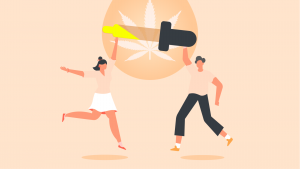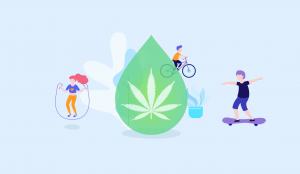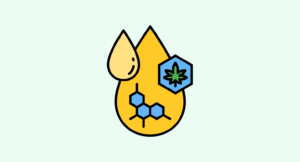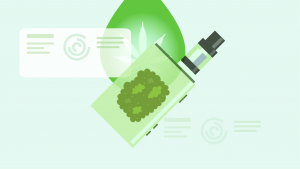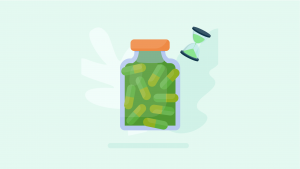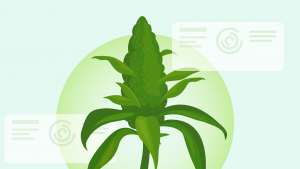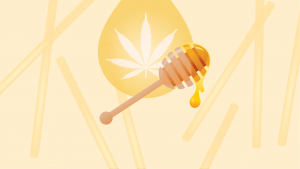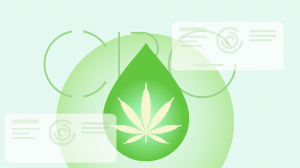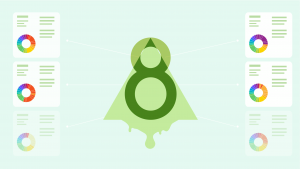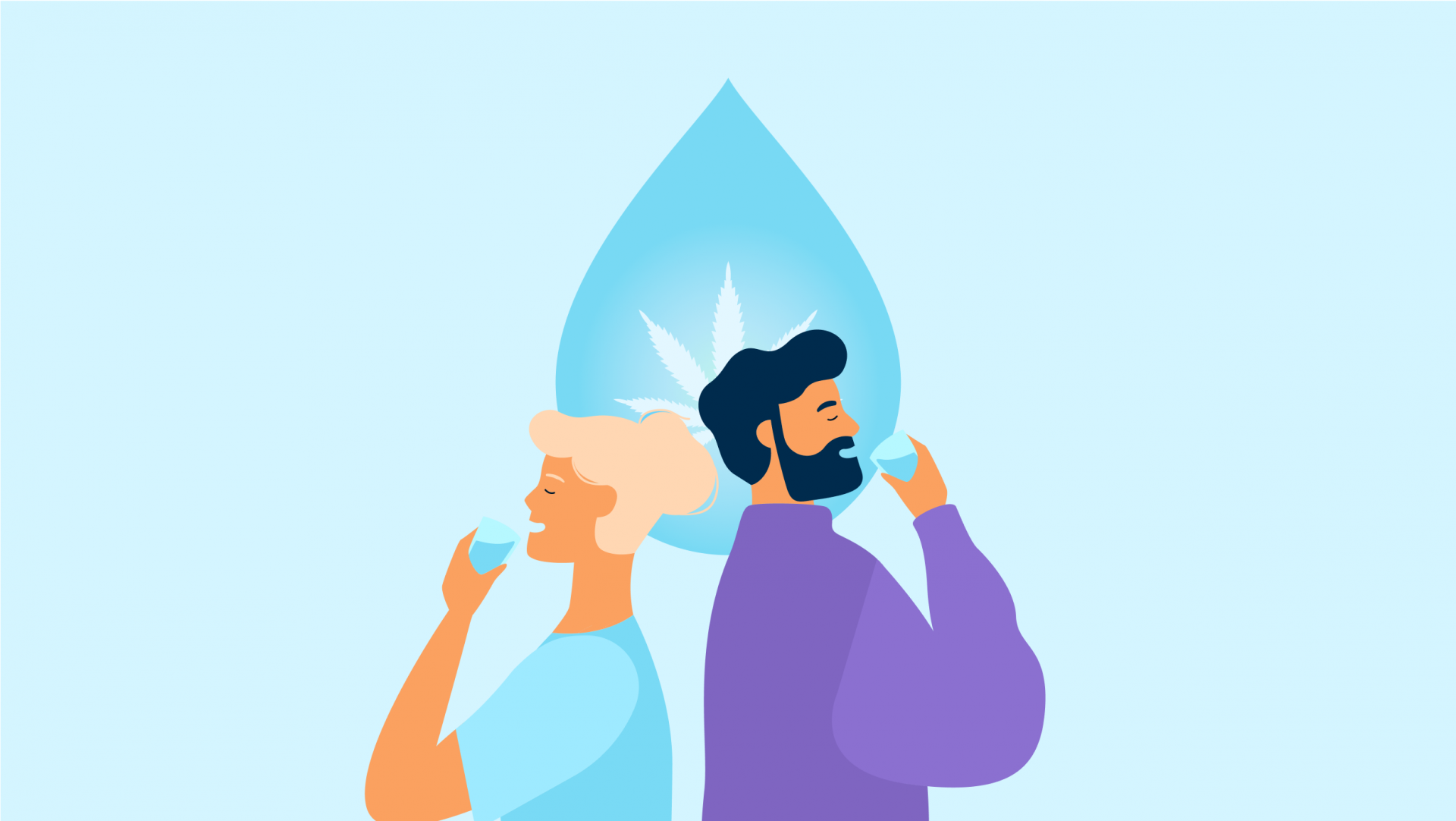
Evidence based
Don’t Waste Your Money on CBD Water
CBD water seems like a great idea until you take a look under the hood. These products are overpriced & underpowered.
CBD water sounds great — knock back a bottle of medicated water to quench your thirst and kill your pain.
But there are some fundamental problems with this stuff.
The CBD water industry is infused with exaggerated claims, false information, and poor product design — oh yea, and trace amounts of CBD.
CBD water is single-handedly the most inefficient, overpriced, and underpowered category of CBD products on the market today. Quite frankly, they’re giving the entire industry a bad name for their expensive and scammy nature.
Here, we’ll break down why I recommend you stay at least 6 feet apart from CBD water and what you should try instead.
There Are Some Fundamental Problems With CBD Water
CBD water is exactly what it sounds like — it’s a bottle of filtered water with CBD dissolved throughout. It’s marketed in the same way as alkaline or ionized water (which is also a scam).
Companies market these products as a way to treat chronic pain, anxiety, insomnia, and to promote overall “health and wellness.”
Here are the four biggest problems with CBD water that make it a poor product to spend your money on:
- They contain minimal quantities of CBD
- The CBD in water is exposed to light and quickly degrades
- They’re excessively overpriced
- They’re filled with exaggerated & unsubstantiated health claims
Let’s cover each one in a little more detail for those who disagree:
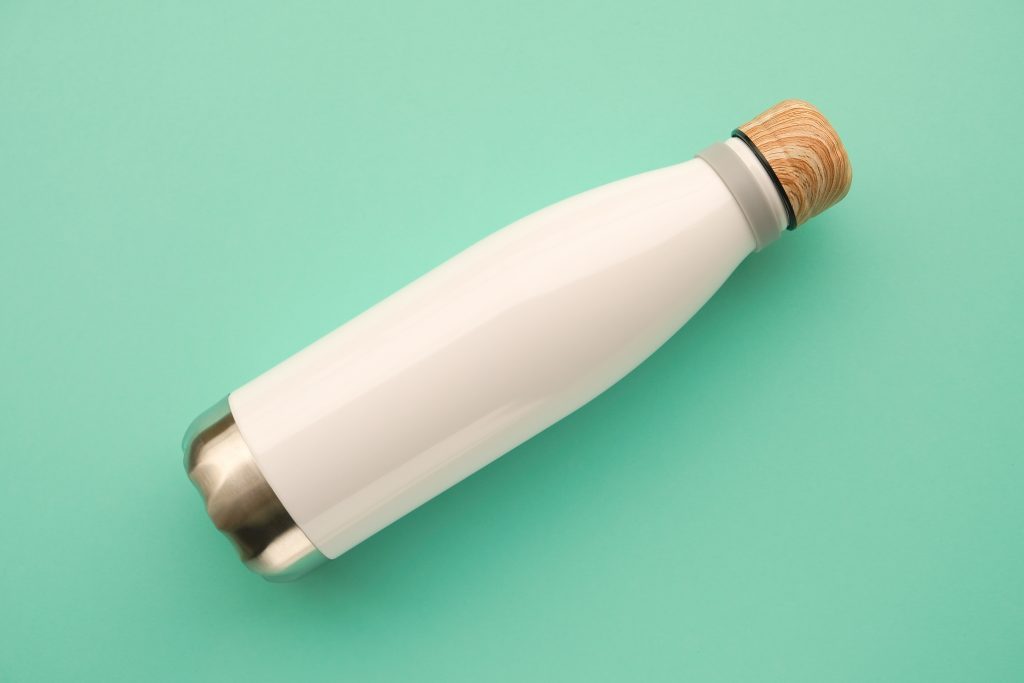
1. They Contain Minimal Amounts of CBD
CBD waters contain very low concentrations of CBD.
This isn’t because all CBD water brands are cheaping out on the amount of CBD they’re using; it’s because you simply can’t stuff very much CBD into a bottle of water even if you wanted to.
CBD is not water-soluble — which means it doesn’t dissolve into the water very easily. If too much is added, it will just fall out of the solution and settle on the bottom.
CBD much prefers to dissolve into fats and oils — which is why the quintessential form of CBD is an infused oil.
A typical bottle of CBD water only provides about 10 or 20 mg of CBD in total. Any more than this would require a larger volume of water, or emulsifiers and other chemical additives.
I’ve seen companies that claim to add up to 300 mg per bottle but don’t offer any third-party tests to prove this is the true concentration in the water. I’m very skeptical about the accuracy of these claims.
You can find a type of CBD called “nano CBD,” which involves breaking pure CBD crystals into even smaller pieces. While this helps it dissolve in water, it’s still very limited.
The strongest CBD water I could find delivers a potency of around 0.04 mg/mL of water. Compare this to CBD oils, which contain substantially more potency (up to 180 mg/mL).
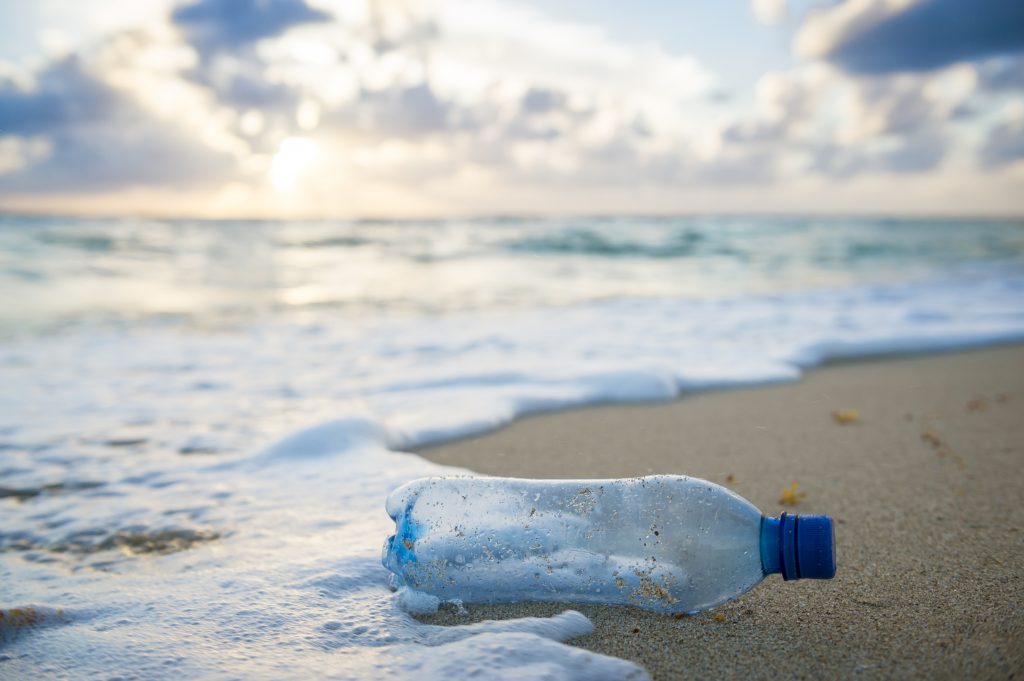
2. CBD Degrades When Exposed to Light
Have you ever noticed that any CBD products you order come in a dark or completely opaque container or tincture bottle? Well, there’s actually a good reason for this.
CBD and all the other cannabinoids in hemp break down when exposed to light and oxygen. It’s critical to store CBD products in dark, sealed containers to limit the natural degradation and maintain the potency of the product over longer periods of time.
Suspending CBD in a clear bottle of water, which then spends several days, weeks, or months on a store shelf under artificial lighting, virtually destroys all the active ingredients before you ever crack the seal.
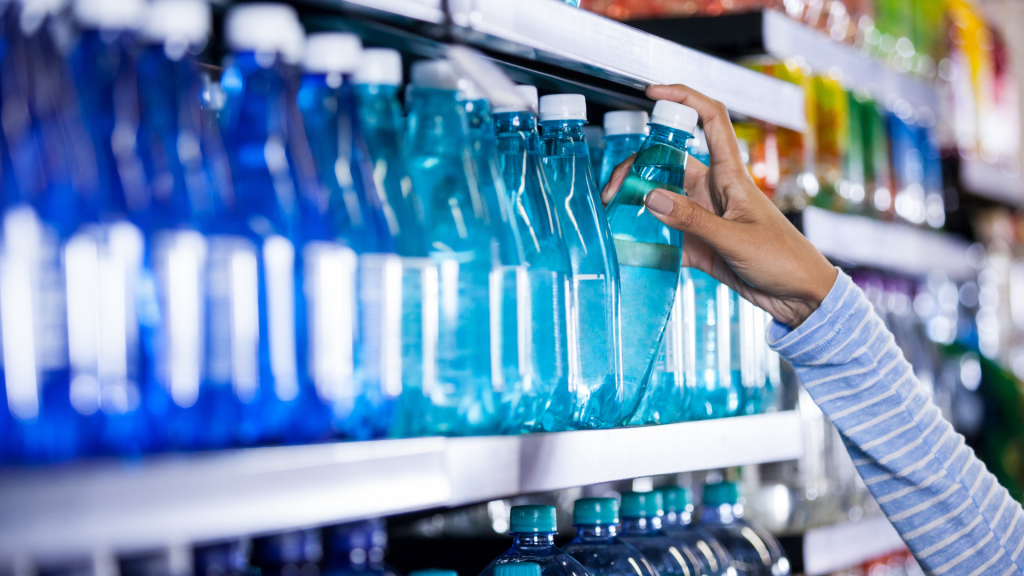
3. It’s Overpriced For What You Get
CBD water is expensive.
If you’re looking for an excuse to spend upwards of $4 on a bottle of filtered water — CBD water may be for you.
There are two factors that could justify some of the high cost of CBD water:
- Water is heavy — which increases the cost of shipping
- Water takes up a lot of space — which makes it more expensive to store
Outside of these factors, there isn’t much reason for these products to be so expensive. Water itself is cheap, and the amount of CBD used in the formula is cheap as well.
Bulk CBD usually costs manufacturers about 2 or 3 cents per milligram. The average CBD water goes for closer to 40 cents per milligram on the retail side.
The truth is, even if we could justify the high cost of these products, it doesn’t deliver much value to you, the consumer — especially when you compare it to other product categories.
CBD oils are the most common form of using the supplement — they cost more upfront but deliver significantly more value for the money. Even if we don’t account for the fact that the listed concentration of CBD on a bottle of CBD water is likely to be much lower in reality, the cost per milligram of CBD oils is less than half the cost per milligram of CBD in water.
Comparing the cost of CBD water to other product types:
| Product Name | Total Cost | CBD Content | Cost per mg CBD |
| CBD Living Water | $84.00 ($3.50 per bottle) | 10 mg | $0.35 |
| Oki CBD Water | $60 (5.00 per bottle) | 20 mg | $0.25 |
| Royal CBD Oil | $129.00 | 1000 mg | $0.13 |
4. Most of the Companies Selling CBD Water Use Scammy Marketing Techniques
Exaggerated claims are abundant in the CBD space, to begin with — but it’s especially prevalent in the CBD water space.
The main claim companies are making relates to the bioavailability of their products because they’re using “nano-CBD.” The idea is that by making the particles of CBD smaller, they’re more readily absorbed by the digestive tract.
There’s some truth to this, but it’s limited. The difference isn’t enough to reasonably make some of the claims I’ve seen CBD water brands advertising.
For example, a company claiming their 2.5 mg CBD water has the equivalent of 25 mg of CBD because it’s “water-soluble” is categorically wrong.
Even if CBD was more bioavailable in a nano form, it’s still just as easy to take a higher dose of regular CBD in products like CBD oils, capsules, or gummies.
The other claims to watch out for revolve around the medical applications. CBD water is not a medical treatment. They aren’t suitable to use as a treatment for any medical condition. They’re not strong enough and not reliable enough to realistically make claims like this — yet, it’s not hard to find strong health claims from CBD water brands around the treatment of cancer, pain, inflammation, anxiety, and much more.
Strong health claims like this from any CBD company should be a red flag. Order from companies that are honest about what their products can (and can’t) do.
Who Sells CBD Water?
There are a lot of companies selling CBD water these days, but if you notice, none of them are considered reputable brands. Most of the companies on this list overlap with our list of scam CBD companies and multilevel marketing brands.
CBD companies that list “CBD water” in their lineups:
- CBD Living
- CBD American Shaman
- Oki CBD
- Canna Nano
- CBD Naturals
- NanoCraft
- Goodleaf
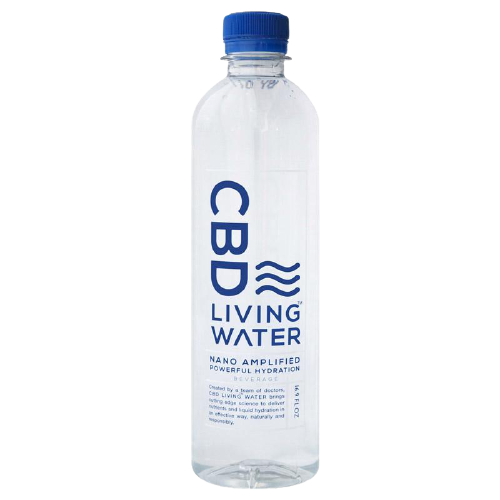
What You Should Consider Using Instead of CBD Water
There are plenty of great alternatives to spend your money on instead of CBD water. Products like CBD oils, capsules, and gummies offer much better bang for your buck and provide better consistency in terms of the doses you’re taking.
1. CBD Tinctures
CBD oils and tinctures (synonymous) are the primary forms of CBD on the market today.
As I’ve mentioned above, CBD is fat-soluble (not water-soluble). This means companies can dissolve significantly higher concentrations of the active ingredients into an oil base than they can with a water base.
CBD oils come in potencies that range from 1 mg per mL all the way up to about 180 mg/mL and everything in between.
CBD oils are cost-effective, have a long shelf-life, and are honestly just as easy to use as CBD water. Just place a few drops directly into the mouth to get a potent dose of CBD and other cannabinoids.
2. CBD Capsules
CBD capsules are another common form of using CBD. They’re made by filling empty gel capsules with CBD oil to make them easier to use. Some people prefer the simplicity of a capsule over CBD oils because they don’t have to measure the dose.
Ultimately capsules offer all the same benefits as CBD oils and cost roughly the same amount.
3. CBD Gummies
CBD gummies are made by infusing CBD isolate or broad-spectrum CBD in a fruity gummy base. They have all the same benefits as CBD capsules but taste better.
Gummies are the preferred option for parents using CBD with their children, for people who don’t like the taste of oils or those who don’t like swallowing gel caps.
Final Thoughts: Don’t Buy CBD Water
The bottom line here is that you should always take the marketing messages provided by CBD companies with a grain of salt.
For every quality CBD product on the market today, there are 10 scammy or overpriced products.
While we’re doing the best job we can to bring clarity to this market by highlighting the companies that are playing fairly and selling quality products, we can’t reach everybody. You have to use your own logic and reason to consider whether or not the claims a company is making are reasonable.
The fact that CBD water contains minuscule doses of CBD, paired with the fact that CBD breaks down fairly quickly when stored in clear containers, explains why so few people notice any effects whatsoever from using CBD waters.
Just go for a simple bottle of CBD oil, capsules, or gummies instead.

